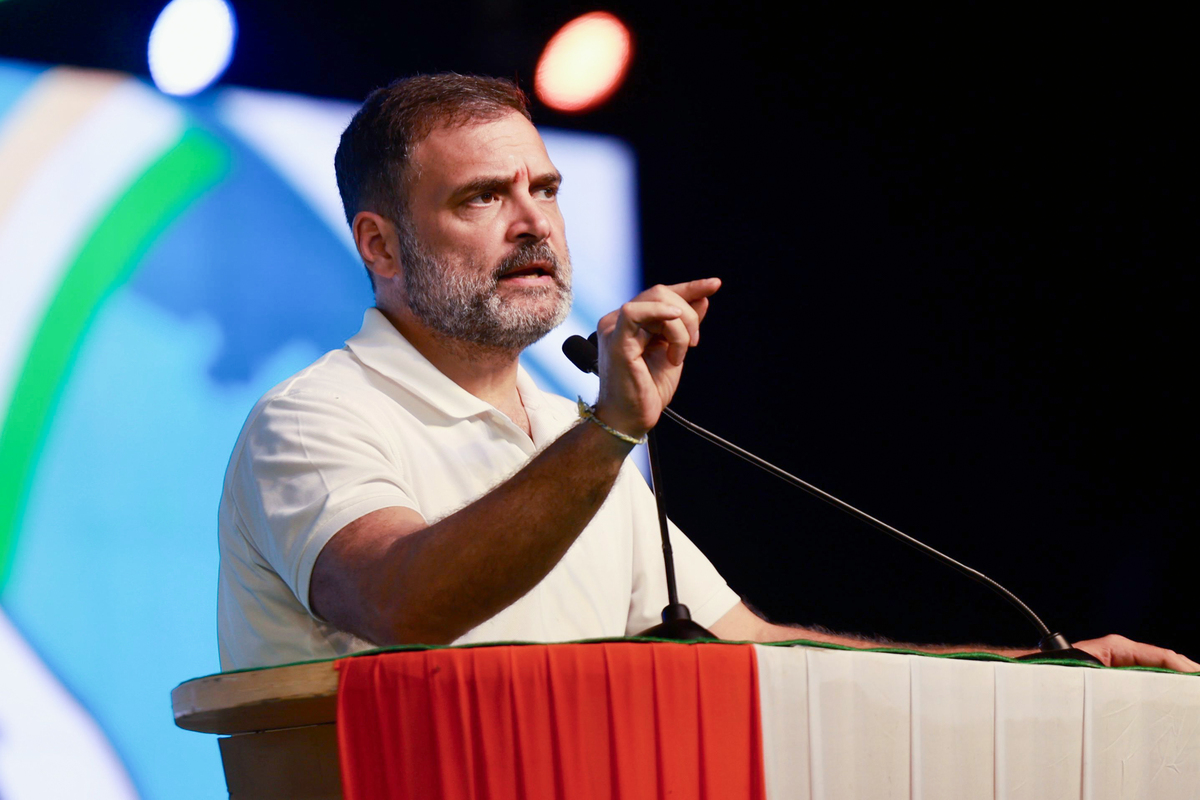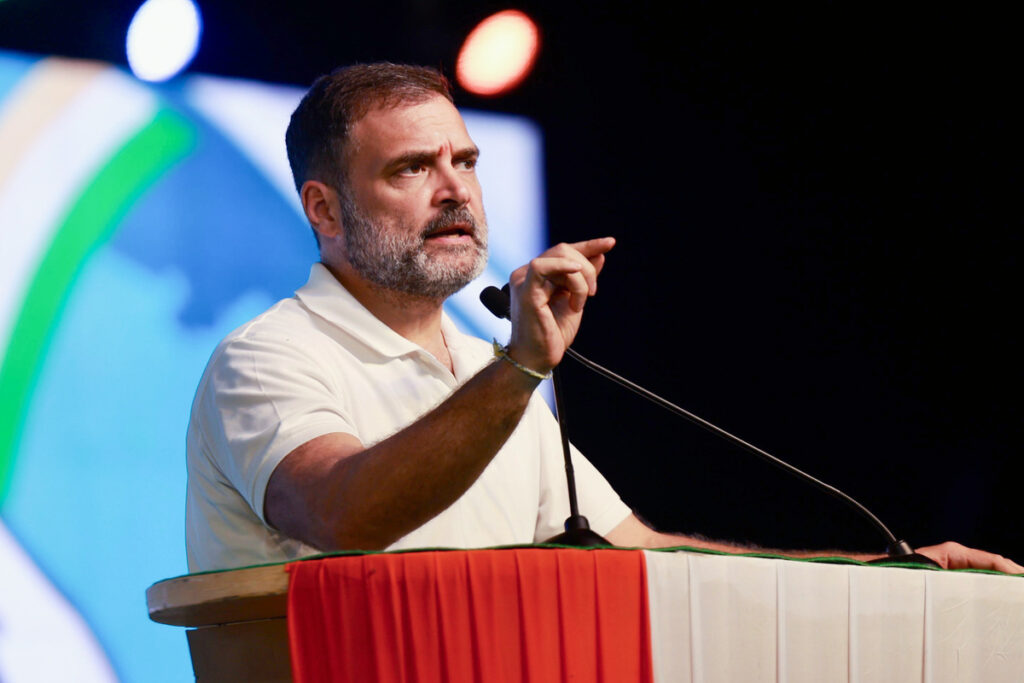Now Reading: Rahul Gandhi’s Vote Theft Allegations Debunked by EC
-
01
Rahul Gandhi’s Vote Theft Allegations Debunked by EC
Rahul Gandhi’s Vote Theft Allegations Debunked by EC

New Delhi, 8 August, 2025:Rahul Gandhi’s congress leader made a series of accusations regarding electoral malpractices, prompting a strong response from the Election Commission of India (ECI). The ECI has labeled Gandhi’s claims as “misleading” and “baseless,” and has challenged him to submit his evidence under a signed oath. Gandhi’s allegations, which were detailed in a press conference and supported by what he described as “atom bomb” evidence, have brought the integrity of the electoral process under intense scrutiny.
The central point of Gandhi’s allegations revolves around the existence of what he claims are “fake” and “duplicate” voters on the electoral rolls. Specific instances were cited, including the alleged presence of the same individual registered multiple times in a single constituency and voters with invalid or non-existent addresses. It was also claimed that in a particular Lok Sabha constituency in Karnataka, a large number of “stolen” votes were found, which were linked to duplicate and fake entries. These assertions were used to suggest a systemic manipulation of the electoral rolls.
Also Read:SBI Q1 Profit Jumps 12% to ₹19,160 Crore, Beats Estimates
In its public statements, the ECI has refuted these claims. The commission has clarified that while it is possible for some electors to have identical Electors Photo Identity Card (EPIC) numbers, this does not automatically indicate “fake or duplicate voters.” This issue was attributed to a decentralized system that was used to issue EPIC numbers in the past, before a centralized platform (ERONET) was implemented. The ECI has also stated that a voter can only cast a vote at their designated polling station, which is determined by their unique demographic details and address, regardless of their EPIC number.
The ECI has also criticized Gandhi’s claims that it is deliberately providing non-machine-readable electoral rolls to hinder scrutiny. This was a key part of Gandhi’s argument, as he claimed that the paper-based lists provided by the EC make it a laborious and time-consuming process to analyze for discrepancies. According to Gandhi, if electronic data were provided, the same analysis could be completed in a matter of seconds.
Despite the ECI’s rebuttals, a point of public concern remains. The ECI’s official website, which offers a “Search in Electoral Roll” feature, has reportedly been silent on how it addresses or rectifies the issue of voters with multiple EPIC IDs. While the commission has stated that it is taking steps to ensure a unique EPIC number is assigned to every voter, details regarding how this is being implemented or if the website’s search functionality has been updated to reflect these changes have not been widely publicized.
The ECI has been asked by leaders from the Congress and other opposition parties to come clean on the issue and address the discrepancies raised. The poll body has invited Gandhi to submit his evidence through a signed affidavit, and has warned that making false declarations is a punishable offense. This ongoing dispute between a major political leader and the country’s top electoral body has further intensified the debate surrounding the fairness and transparency of the electoral process in India.







